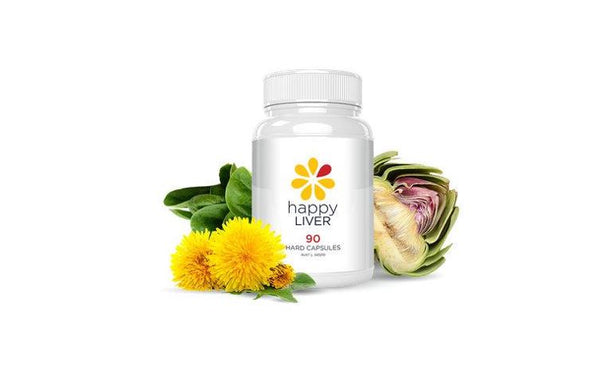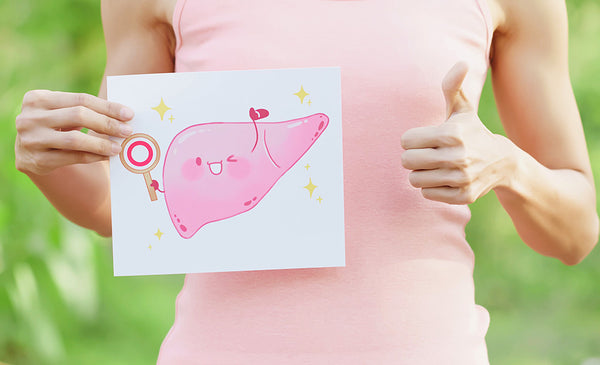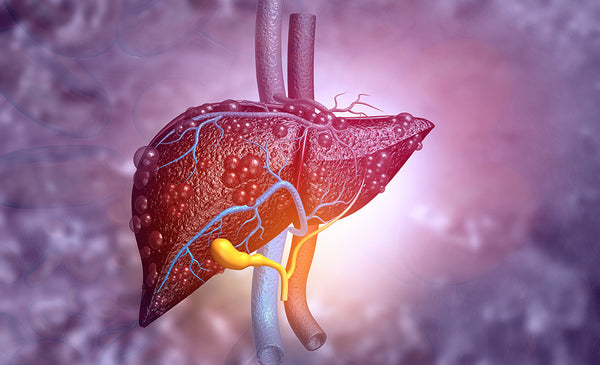Cholesterol: How Much of It is Healthy?
What is cholesterol?
Cholesterol is an essential component of every cell membrane in the human body. It is required for the synthesis of hormones and the protection of nerve fibres. It can either be introduced into the body from dietary sources (exogenous) or manufactured in the body by the liver (endogenous). It is needed in the digestive system to breakdown fats, lipids and oil from foods. About 30% of the body's cholesterol content is derived from dietary sources. However, it isn't actually necessary to consume it in the diet as enough is produced by the body.
The amount of cholesterol in the body can be determined by a blood test, with healthy levels set at approximately <3.5mmol/litre for LDL (low-density lipoproteins) and >1mmol/ litre for HDL (high-density lipoproteins). High cholesterol levels are an indicator of an increased risk of developing heart disease (atherosclerosis, arteriosclerosis) and is not a disease in itself. There is no quick fix for reducing cholesterol in the body – it takes time (at least 6 months) plus the combination of diet, lifestyle and exercise changes for the long term.
Deciding if cholesterol levels are a health issue that needs treatment and management is based on two factors: lipid levels (total cholesterol, LDL, and HDL) and the presence of additional risk factors such as:
- cigarette smoking
- diabetes
- hypertension (high blood pressure)
- low HDL cholesterol
- a family history of premature heart disease
Diet tips for lowering cholesterol levels
- Increase fibre consumption. Certain forms of fibre such as oat bran, slippery elm powder, flaxseed and psyllium seeds encourage cholesterol excretion.
- Psyllium (a type of mucilage) inhibits the absorption of dietary cholesterol and lowers total serum cholesterol levels by up to 15%.
- Eat mainly a vegetarian diet with plenty of grains, fruits and vegetables. Reduce the amount of animal fats consumed.
- All grains, legumes, nuts, seeds, fruits and vegetables are void of cholesterol.
- Apple pectin has an affinity for cholesterol – it binds to and facilitates its excretion from the body. Grate an apple onto your porridge in the morning.
- Garlic, ginger and onions should be used as much as possible in cooking as they help reduce blood cholesterol and triglycerides.
- Have half a lemon squeezed into some warm water first thing in the morning. This stimulates liver and gall bladder function, cleanses the bowel and primes digestion for the day.
- Reduce consumption of saturated fats (oils), trans fatty acids, refined carbohydrates and sugar. Ninety-five per cent of the average daily consumption of trans fat is in the form of partially hydrogenated vegetable oil products such as 'easy-spread butter', margarine (which contains 20% trans fat) and vegetable shortenings. Trans fatty acids are 'hidden' in many processed foods that use partially-hydrogenated vegetable oils (e.g. doughnuts and biscuits). Most commercial dietary oils have been subjected to partial hydrogenation and therefore contain large amounts of trans fatty acids.
- Avoid fried and fatty foods as well as processed and refined foods.
- Have more omega-3 fatty acids in the form of deep-sea oily fish (salmon, snapper, mackerel, anchovies, cod, sardines, and halibut).
- Decrease consumption of omega-6 fatty acids. They’re usually found in corn oil, safflower oil, vegetable shortenings, margarine, processed foods, and tinned foods.
- Always opt for cold-pressed oils such as virgin olive oil and use them raw on top of salads and vegetables.
- Lecithin sprinkled on your food, cereal, or smoothie helps to emulsify fats, lipids and oils and facilitate the breakdown of cholesterol during digestion.
- Herbal teas promote liver detoxification and cholesterol elimination. Dandelion Root, Chicory, and Burdock are the best choices.
- Scientific and medical evidence in support of vitamins is increasing. Much of this information is covered in the book Highway to Heart Health: Antioxidants and You written by Ross Walker. His program is based on fresh foods rich in antioxidants and similar to those found in the traditional Mediterranean diet. He also recommends extra virgin olive oil, green tea, fruits and vegetables, red wine and extra doses of vitamin C, vitamin E and a B-complex.

Lifestyle changes to help reduce cholesterol
- Stop smoking if you’re a smoker.
- Exercise regularly. An average of 40 minutes of moderate to vigorous aerobic activity is recommended three to four times weekly.
- Achieve your ideal body weight. You’ll not only look and feel better; you also reduce your risk of heart disease and other serious health problems.
- Reduce alcohol intake.
- Manage stress as it alone can make quite a significant impact on cholesterol.
- Improve liver function to lessen the accumulation of cholesterol. The liver is responsible for reducing cholesterol and stopping it from being recirculated in the body.
Natural remedies for high cholesterol
- Use antioxidants such as Vitamin C, Vitamin E, CoQ10 and a B Complex formulation. These offer protection from the damage caused by free radical activity on the artery walls. Free radicals can damage blood vessel walls long before blockages develop in the coronary arteries.
- Herbal treatment of high cholesterol focuses on liver health. Herbs such as Globe Artichoke, Golden Seal, Dandelion and Milk Thistle support and protect liver function and are indicated for the treatment of cholesterol. Bitter herbal preparations such as Dandelion Root tea are also traditionally used to support liver function.
-
Plant sterols (also known as phytosterols) may help lower LDL cholesterol levels and assist in improving the LDL:HDL ratio within the healthy range. They work by lowering cholesterol absorption and reabsorption. Take a daily dose of 2-3 grams of plant sterols per day as recommended by the National Heart Foundation of Australia. Choose a formula that also supplies a healthy dose of beta carotene, which may become depleted when taking plant sterols.
- Coenzyme Q10 helps maintain heart and artery health and inhibits the oxidation of LDL cholesterol.
If you follow as many of these tips and suggestions as possible, then you can reduce your cholesterol levels and the risks associated with elevated cholesterol.





















